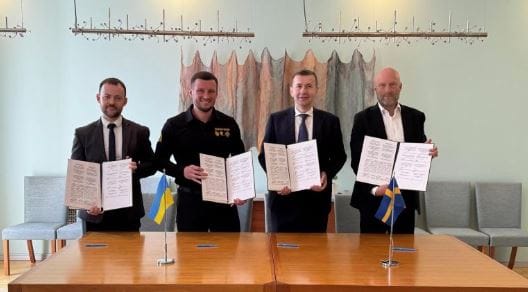
Swedish Water technology Wayout signs Ukrainian MoU to Rebuild Water Services in Kherson regions hardest-hit by water supply collapse—especially following the Kakhovka Dam breach and sustained hostilities.
KYIV, Ukraine – A new memorandum of understanding (MoU) has been signed between the Swedish-based technology firm Wayout and the Ukrainian government, signaling a milestone in reconstruction efforts for war-hit water infrastructure in the southern region of Kherson.
At a ceremony held at the Swedish Embassy in Kyiv, Wayout’s Founder Ulf Stenerhag and CFO Lars Blomfeldt joined Ukrainian officials including Deputy Minister Sergii Vlasenko of the Ministry of Environmental Protection and Natural Resources, and Governor Alexander Prokudin of Kherson oblast.
“Securing safe drinking water remains one of our greatest challenges in the war-affected regions. This collaboration with Wayout represents an important step toward restoring essential public services in Kherson. We welcome this initiative, which brings together sustainable technology and international solidarity.” — Deputy Minister Sergii Vlasenko
What the MoU means
The agreement formalises Wayout’s commitment to deploy its sustainable-technology solutions to rehabilitate water supply systems in Kherson, including: renovating pipelines, restoring treatment and delivery networks, and deploying monitoring/remote-sensor capabilities to ensure reliability. It also emphasises collaboration with Ukrainian ministries to align technology with local needs and war-recovery priorities.
Why it matters
- Kherson is among the regions hardest-hit by water supply collapse—especially following the Kakhovka Dam breach and sustained hostilities. Restoring basic potable-water infrastructure is foundational for health, sanitation and recovery.
- The initiative represents a fusion of private-tech innovation plus international aid/solidarity—in this case Sweden-Ukraine cooperation—which could serve as a model for other regions (Donetsk, Zaporizhzhia) where water-network damage is pervasive.
- Ensuring safe-drinking water is also strategic: when public services fail, humanitarian risks escalate (disease, displacement, social unrest) and reconstruction becomes harder. By targeting water systems early, Ukraine can stabilise communities and support return of displaced populations.
Challenges ahead
- The scale of destruction in the water-sector is vast: tens of thousands of kilometres of damaged networks, multiple towns where supply is intermittent or non-existent. Reconstruction will require large funding pools, logistical coordination and security context management.
- Many affected areas remain under partial or full Russian occupation or have front-line risks, which complicates access and implementation.
- Technical difficulties: Some treatment plants were damaged, water-quality risks are increased, and new systems need to be climate-resilient as well as war-resilient.
- Funding and supply-chain constraints amid war economy environment: components, skilled labour and secure construction zones are not guaranteed.
Outlook
While the MoU is a strong signal of momentum and partnership, real-world results will depend on implementation speed, security stability in Kherson, and broader reconstruction financing. If Wayout and partners succeed, their work could help restore daily life for thousands of residents and strengthen the overall resilience of Ukraine’s water-sector. As one official said today: this is not just rebuilding pipes—it is rebuilding hope. Wayout was a winner of the Earth 05 Co-creation prize, awarded in Davos January 2025. See Profile of Wayout.
Comments
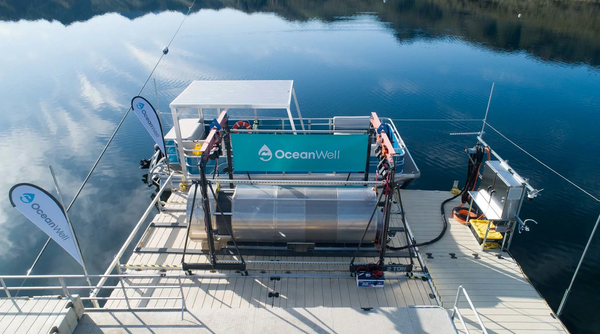
OceanWell Taps Deep Ocean to Redefine Sustainable Desalination
Water scarcity is rapidly becoming one of the most pressing global challenges, driven by climate change, population growth, and declining freshwater reserves. While desalination has long been seen as part of the solution, conventional systems remain energy-intensive, land-heavy, and environmentally controversial. OceanWell is advancing a new approach that rethinks how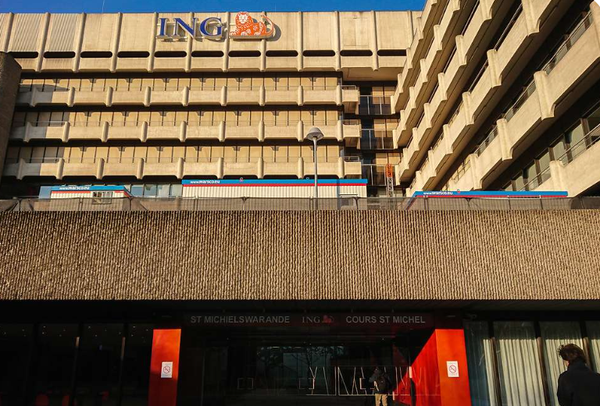
Revolutionizing Water Management: How Technology is Tackling Water Waste in Buildings.
Shayp client ING went live in 2022 and has already saved over 3 million litres per year. In a couple of months, they were able to avoid 473 kg of carbon emissions by just monitoring their water and taking action efficiently.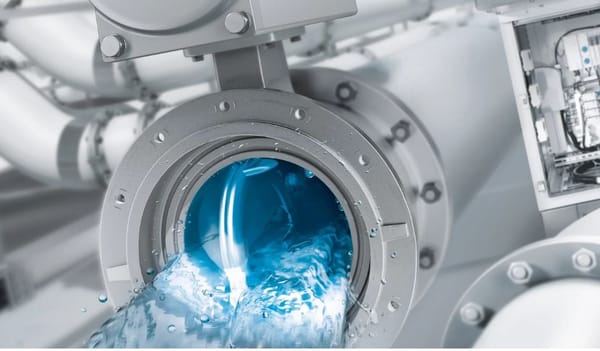
New Ecosystem Resource Directory Launched to Support Water Technology Companies Worldwide
A new Ecosystem Resource Directory is being developed to support water technology companies working to scale breakthrough innovations and proven solutions across the global water sector. The initiative aims to create a comprehensive, practical inventory of resources available to companies navigating the complex journey from innovation to market scale. By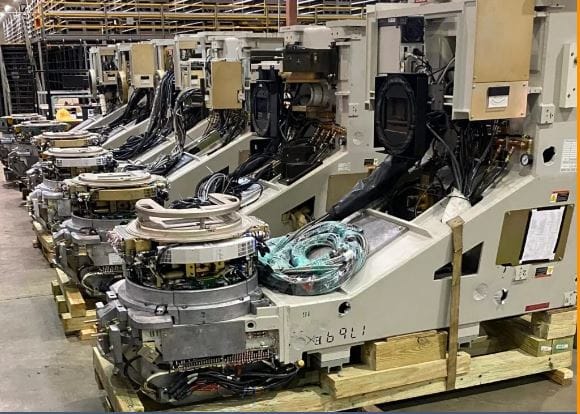
Pulse Industries to Build First Mass-Production Facility for Industrial Linear Accelerators which can be applied to water treatment systems capable of destroying ‘forever’ chemicals.
MARIANNA, FL – Pulse Industries will establish a 278,000-square-foot advanced manufacturing facility at the Marianna Airport Industrial Park, marking a transformative milestone in the mass production of linear accelerator systems. This initiative will create hundreds of skilled jobs and profoundly expand the accessibility of electron beam technology for diverse global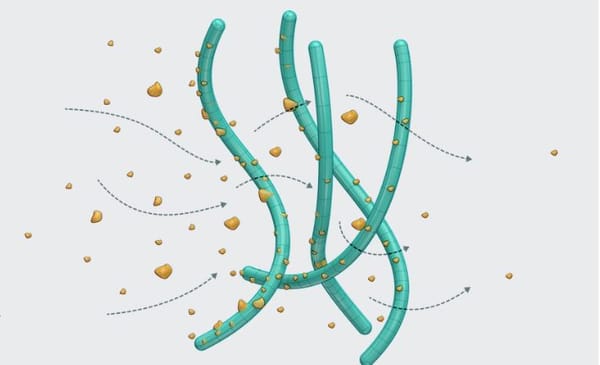
Pilot success at Atlantic County Utilities Authority (ACUA) paves way for full-scale deployment of PolyGone Systems micro-plastic removal technology
Atlantic City, NJ — November 8, 2025 — A year after the grand unveiling of the micro-plastic removal pilot at ACUA’s wastewater treatment facility, the partnership between PolyGone Systems and ACUA is now transitioning into a full-scale implementation phase — marking a significant milestone in the fight against micro-plastic pollution in treated
